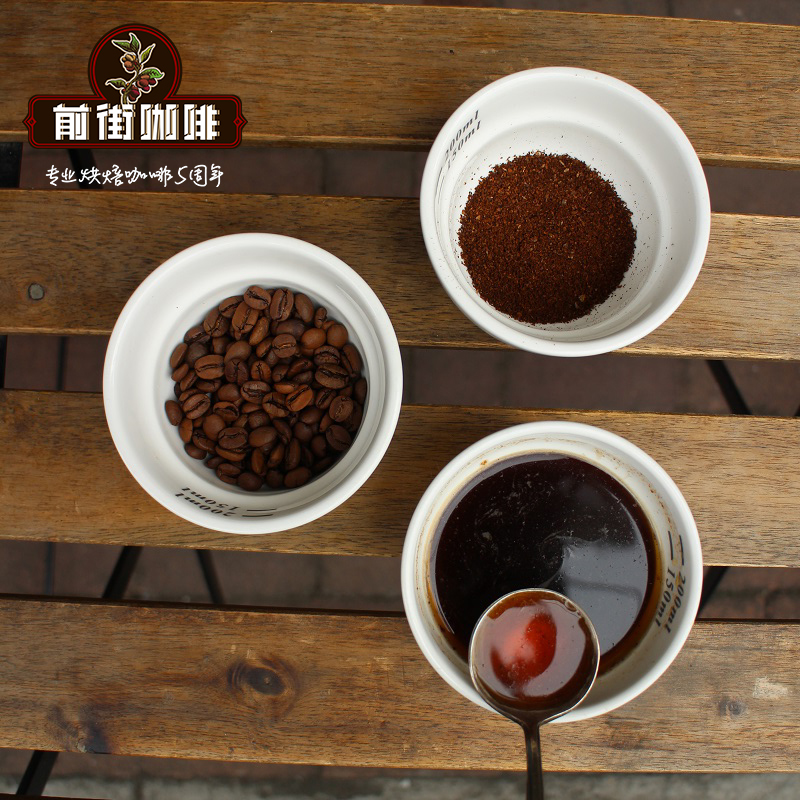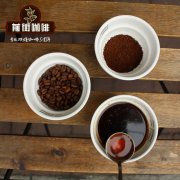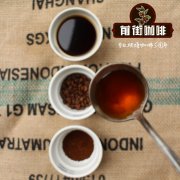Coffee flavor and taste of washed organic beans in Maubesse, East Timor? East Timor coffee species

Professional coffee knowledge exchange More coffee bean information Please pay attention to coffee workshop (Weixin Official Accounts cafe_style)
Coffee flavor and taste of washed organic beans from East Timor Maubesse region? What are the types of coffee in East Timor?
East Timor, located between Indonesia and Australia, was formerly a Portuguese colony; after Portugal left in the early 1970s, Indonesia invaded and persecuted the islanders, leading to the independence of the East Timor people. After years of struggle, they finally elected their own president in 2002. East Timor should be the largest organic coffee producer in the world because it has not used chemicals and fertilizers for the past 25 years.
In the process of confrontation with Indonesia, East Timor's economic system was persecuted, while Timor coffee beans not only declined from 45000 tons to 6000 tons, but also had unsatisfactory quality. Since 1994, with the assistance of traders, EU and USAID, East Timor organic beans were upgraded, washed and planted with better typica varieties. Good reputation made East Timor organic beans famous in fine coffee circles.
This batch is a small import of 100% organic beans from Maubesse's Cafe Cooperativa Time (CCT) cooperative, approved by the U.S. Department of Agriculture (USDA)(Note: The Organic Food Production Act (OFPA) passed in 1990 requires the U.S. Department of Agriculture (USDA) to develop a set of common national standards and regulations for organic agricultural products so that consumers can identify organic products. All products labeled "organic" must be certified by the United States Department of Agriculture (USDA) by a state or private organization, such as OCIA, which is common in the coffee industry, and Skal-International, which helps CCT certification, are organic certification organizations and approved by the USDA, and are among the organizations that certify [organic coffee beans].)
CCT is a smallholder cooperative, planting Typica species in Maubesse, and using full shade cultivation to avoid too long and intense sunlight, after harvest, with delicate water treatment method, carefully selected raw beans, cup test after the aroma rises, taste to meet: sweet, medium to highly acidic with good body, creamy and an automatic finish.
Country: East Timor Production area: Maubesse Production institution: Cafe Cooperativa Timor
Variety: typica Designation: 100% organic, 100% organic coffee, USDA approved
Treatment: Water washing method (natural sun drying)
Appearance/number of defects: dark green, almost no defects beans
Dry fragrance: cool fragrance, fruity fragrance, rich oil feeling
Wet aroma: caramel sweet, cocoa sweet, nasal aroma lasting, aroma can always be clearly felt
Sip: Bright and delicate acidity, long lasting, sticky body, cocoa, chocolate flavor, unique berry sweetness and sourness, lingering fruit sweetness and sourness, and even some Swiss mint chocolate flavor
Front Street Coffee Recommended Brewing:
Filter cup: KONO filter cup
Water temperature: 88 degrees
Polishing degree: Small Fuji Polishing degree 4
Cooking method: water-powder ratio 1:14, 17g powder, first injection of 25g water, stewing for 30s, second injection to 238g water, extraction time 2:30 s
Analysis: The ribs at the bottom of the KONO cup are not many, and the filter paper is attached to the filter cup to achieve the purpose of limiting the airflow, so that the water and coffee powder can have a longer contact soaking time in the filter cup to ensure the extraction time and extraction rate of coarse grinding. This allows the coffee powder to be fully extracted, enhances the mellow taste, and makes the taste more concentrated.
Important Notice :
前街咖啡 FrontStreet Coffee has moved to new addredd:
FrontStreet Coffee Address: 315,Donghua East Road,GuangZhou
Tel:020 38364473
- Prev

What's the taste and taste of East Timor Alpine G1 coffee beans? How to make Timmy Coffee in East Timor
Professional coffee knowledge exchange more coffee bean information please follow the coffee workshop (Wechat official account cafe_style) East Timor Alpine G1 coffee beans taste and taste? How about the planting history of East Timor Tim Coffee varieties? East Timor Maubbessee coffee, rubber, red sandalwood metaphor known as the Timorese three treasures. In particular, it can be seen that the economic importance of coffee in Timor is a proportion.
- Next

East Timor Coffee East Timor- East Timor Coffee Dulis plus production area Muqiu Family Garden Tim
Professional coffee knowledge exchange more coffee bean information please follow the coffee workshop (Wechat official account cafe_style) East Timor Coffee East Timor- East Timor Coffee Dulis plus producing area how does Tim taste and taste in the Muqiu family farm? Most of the coffee in East Timor is grown in small farms in a vibrant way, with small quantity but good quality, high purity and spice flavor.
Related
- Detailed explanation of Jadeite planting Land in Panamanian Jadeite Manor introduction to the grading system of Jadeite competitive bidding, Red bid, Green bid and Rose Summer
- Story of Coffee planting in Brenka region of Costa Rica Stonehenge Manor anaerobic heavy honey treatment of flavor mouth
- What's on the barrel of Blue Mountain Coffee beans?
- Can American coffee also pull flowers? How to use hot American style to pull out a good-looking pattern?
- Can you make a cold extract with coffee beans? What is the right proportion for cold-extracted coffee formula?
- Indonesian PWN Gold Mandrine Coffee Origin Features Flavor How to Chong? Mandolin coffee is American.
- A brief introduction to the flavor characteristics of Brazilian yellow bourbon coffee beans
- What is the effect of different water quality on the flavor of cold-extracted coffee? What kind of water is best for brewing coffee?
- Why do you think of Rose Summer whenever you mention Panamanian coffee?
- Introduction to the characteristics of authentic blue mountain coffee bean producing areas? What is the CIB Coffee Authority in Jamaica?

